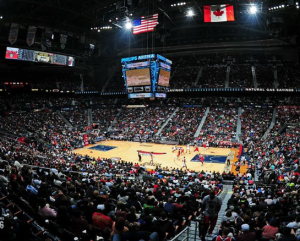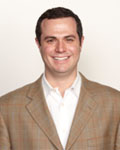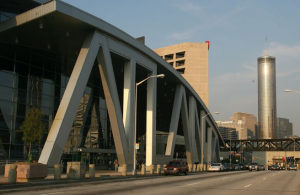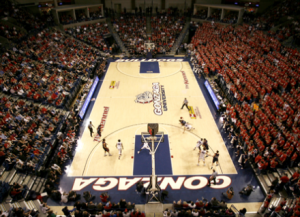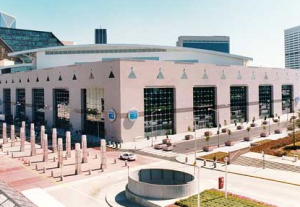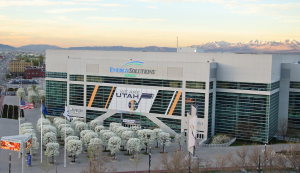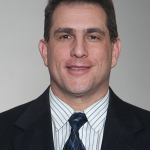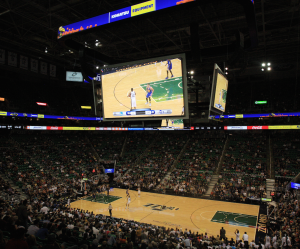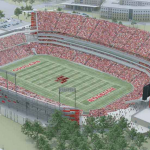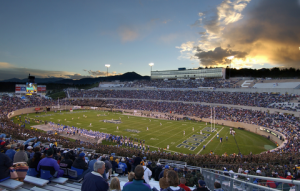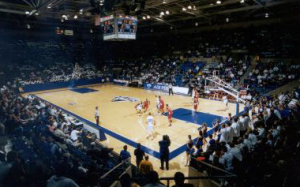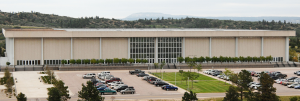“We wanted to avoid the spinning [timeout] wheel of death,” said Andrew Steinberg, senior vice president and chief revenue officer for the Atlanta Hawks and for Philips Arena, in a recent phone interview. Home to the NBA’s Hawks, Philips stood out as one of just six NBA arenas without fan-facing Wi-Fi services, and with no cellular DAS.
That will change soon, thanks to a deal Philips signed with Boingo Wireless to provide free fan Wi-Fi and a neutral host DAS for the facility by the start of the next NBA season.
According to Steinberg, the area’s well-connected citizens, who probably trail only California’s Silicon Valley in devices per person, weren’t happy when they tried to access their social networks at Philips.“We know people are coming to arena have been very challenged, just to tweet or post a picture to Instagram,” Steinberg said. “We needed to correct that.”
The process to do so actually started a couple years ago, when the Philips IT team put out a request for proposals that was very detailed in nature. “We wanted a robust backbone and infrastructure, and we were very thorough,” said Steinberg about the review process. “We wanted to find the best solution. And Boingo [Wireless] had the best fit for our plans.”
Neutral DAS a necessity
One of the requirements for Philips was that its DAS host needed to be a neutral third party, and not a single carrier. “I much prefer a neutral host DAS,” said Steinberg. “I’ve seen it done different ways. What I prefer is a best in class solution from a partner who can further engage the carriers.”Boingo, Steinberg said, “delivered on that promise” and will have all the major carriers online when the DAS deployment is ready to go for the next NBA season.
Doug Lodder, vice president of business development at Boingo Wireless, said Steinberg and the Hawks were “very thorough” with their request for technology. “They took the time and did due diligence – they were way out in front of most venues [in their proposals],” Lodder said.
According to Steinberg, the infrastructure at Philips – which opened in 1999 – presented no special challenges to deployment. There was even plenty of space on site for the DAS head end, which is sometimes a challenge for stadium retrofits.
If there is a challenge, it could come from Boingo’s crews having to work around the extensive activity schedule at Philips, which includes concerts, games, and even the occasional “mudder” race with mud pits and obstacles. According to Steinberg, the arena averages about 130 events a year. But Lodder said Boingo is used to such deployment scheduling. “We can do three shifts in a row if needs be,” Lodder said.
Build it, then you can use it
Even though Philips hasn’t had high-end connectivity, that doesn’t mean Steinberg and his team haven’t been looking at what a good network will allow them to do.
“One of the foremost challenges is to increase revenue while improving the fan experience,” said Steinberg, “while also keeping the fans engaged with the game or event.”
From activities like seat upgrades to future apps, Steinberg said the Philips team knew they needed a good network, as soon as possible.
“The fan engagement potential and opportunities are large, but they require the necessity of connectivity,” said Steinberg. “We have a robust tech roadmap, and having connectivity like this was something we felt was paramount.”
Especially so in an area like Atlanta, which has more than its share of people whose lives already revolve around connectivity. Steinberg said that expectation shouldn’t end just because those people wanted to attend an event at Philips.
“We want people to experience a seamless transition from their office to our venue, and not have a disconnect,” Steinberg said.
